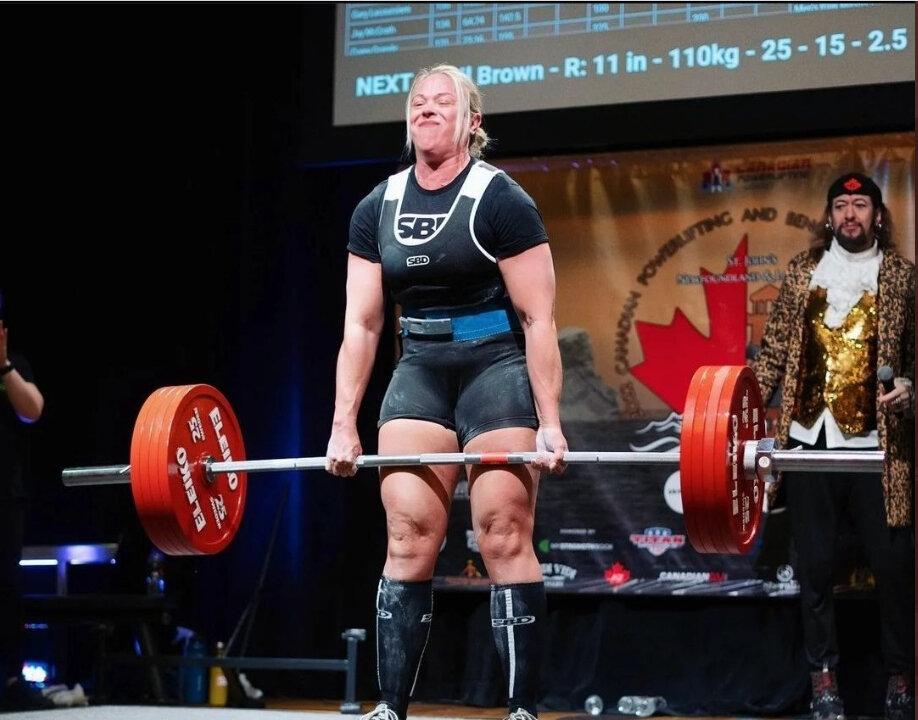When powerlifter and first-time competitor Kristine Bayntun stood on the podium and took second place at the 2019 British Columbia Powerlifting Association Fall Classic, she had no idea she had lost the first-place medal to a competitor born a male.
“This big hulking individual with a deep male voice came to stand beside me. I was just in shock,” Ms. Bayntun told The Epoch Times. She said she thought at the time, “The person who beat me is either on steroids, or they’re not a woman.”





